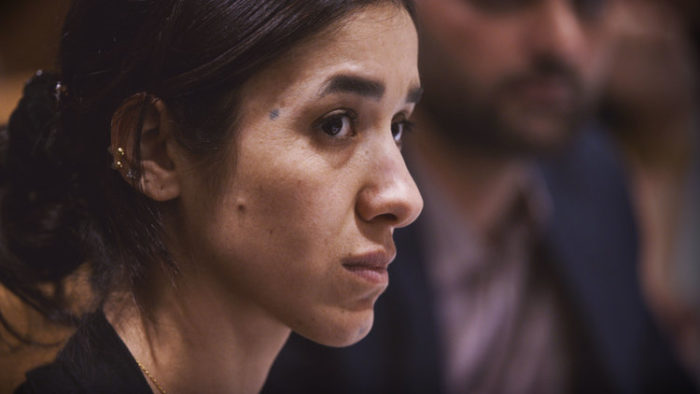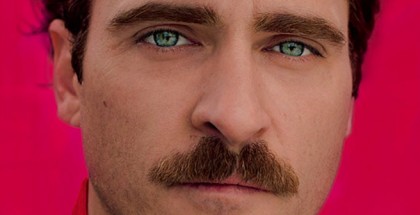VOD film review: On Her Shoulders
Review Overview
Emotion
8Political critique
8Amal Clooney
8Matthew Turner | On 26, Jan 2019
Director: Alexandria Bombach
Cast: Nadia Murad Basee Taha, Murad Ismael, Simone Monasebian, Michelle Rempel, Borys Wrzesnewskyj, Ahmed Khudida Burjus, Amal Clooney, Luis Moreno Ocampo
Certificate: 12
Watch On Her Shoulders online in the UK: Curzon Home Cinema / Apple TV (iTunes) / Prime Video (Buy/Rent) / Virgin Movies / eir Vision Movies / Rakuten TV / Google Play / Sky Store
Directed by Alexandria Bombach (Frame By Frame), this powerful documentary serves as both a profile of human rights activist Nadia Murad and an understated yet pointed critique of the limits of western compassion, particularly with regards to politicians and the media.
The film’s first image is extremely telling: Nadia is first seen trying to get through a lively crowd of people, almost as if she were a pop star. Throughout the experience, she keeps her head down, serious, dignified and focused, as people around her frantically try and film her on their phones or grab selfies.
Thereafter, the film follows Nadia as she delivers speeches at various political events and gives multiple interviews to the press, with only one goal: to bring her people’s genocide to the attention of political leaders and the United Nations. Her constant companion is Murad Ismael, the director of the Yazidi charity Yazda, who acts as both her translator and confidante. Later, as Nadia prepares to give a speech to the United Nations, in line with her appointment as U.N. Goodwill Ambassador, she’s accompanied by human rights lawyer Amal Clooney (whose husband is apparently quite famous), giving her campaign a significant publicity boost (walks into the U.N. are re-staged for the cameras).
Nadia’s story is horrific in the extreme. In 2014, at the age of 21, she was kidnapped, held for three months and raped by members of ISIS, who had targeted her Yazidi community in the village of Kocho. In addition to slaughtering 600 people (including six of Nadia’s brothers and step-brothers), ISIS also enslaved many other Yazidi women, including young girls.
A more straightforward film would be content to let Nadia’s heartbreaking ordeal speak for itself, but Bombach doubles the emotional impact by showing us the toll that being a reluctant spokesperson takes on Nadia, as she’s forced to recount the details of the story over and over again for interviewers, many of whom ask painfully awful questions, such as “Tell me: what that was like, to be treated like property?”
While a handful of the politicians Nadia encounters seem genuinely moved by her plight and share her frustration at the seeming indifference shared by the wider world, there are also telling interactions, such as an unidentified dignitary, caught on Murad’s microphone at the U.N., as he tries to persuade him to get Nadia to thank Angela Merkel in her speech. Again, Bombach offers no explicit critique, but she doesn’t have to – the point has been made.
Throughout the film, Bombach intersperses her observational, fly-on-the-wall footage of Nadia at various meetings with a simple to-camera interview, set against a black background, where she speaks movingly about how she wishes she didn’t have to be an activist and that she wished people knew her for being an excellent make-up artist or athlete, or any of the other dreams of her future she had as a student in Kocho.
It’s impossible not to come away from the film with the deepest respect and admiration for Nadia, who emerges as a person with extraordinary dignity and purpose. In that sense, the film goes hand in hand with 2015’s He Named Me Malala, although Bombach’s hard-hitting critique gives her film an extra edge.



















